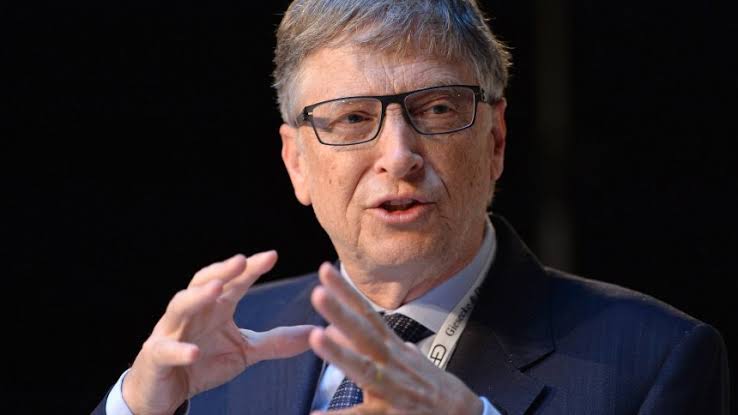Bill Gates has raised serious concerns about Nigeria’s health budget, describing it as inadequate for addressing the country’s growing health challenges. He made these remarks during a media roundtable on his visit to Nigeria, where he emphasized the need for stronger domestic investment in the health sector. According to Gates, Nigeria’s current budget allocation falls far short of what is required to achieve substantial improvements in health outcomes, particularly in maternal and child healthcare.
In the 2025 national budget, the Nigerian government allocated N2.48 trillion to the health sector. This represents just 5.18% of the total budget, a figure that remains well below the 15% benchmark agreed upon by African Union member states in the 2001 Abuja Declaration. Gates noted that while the allocation may appear significant in nominal terms, it is insufficient relative to the scale of Nigeria’s population and its complex healthcare needs.
Gates pointed to Nigeria’s persistently high maternal and child mortality rates as clear indicators of systemic underinvestment in health infrastructure and services. He explained that many deaths could be prevented with access to basic, well-equipped facilities capable of providing lifesaving interventions such as cesarean sections. However, he warned that such care requires not only trained medical professionals but also sustainable funding for facilities, equipment, and pharmaceuticals.
According to Gates, the solution lies in prioritizing primary healthcare, which forms the foundation of any effective health system. He argued that improvements in primary healthcare delivery would yield better health outcomes and reduce the burden on secondary and tertiary institutions. Yet, for this to happen, the government must make deliberate and consistent financial commitments to expand and upgrade local clinics, recruit qualified health workers, and ensure access to essential drugs and vaccines.
A significant obstacle to increased health spending, Gates noted, is Nigeria’s low tax revenue. The country’s tax-to-GDP ratio is among the lowest in the world, severely limiting the government’s ability to fund critical services like healthcare and education. Gates stressed the importance of improving tax collection mechanisms, closing loopholes, and ensuring that wealthier citizens and corporations contribute a fair share to national development.
Beyond revenue generation, Gates called for better management of existing resources. He emphasized that efficiency in public spending is just as important as increasing the size of the budget. Funds must be allocated strategically, monitored rigorously, and used transparently to avoid wastage, corruption, and misappropriation. He pointed out that even modest increases in the health budget could have outsized impacts if the funds are properly managed and directed toward frontline services.
While the Bill & Melinda Gates Foundation continues to support health initiatives in Nigeria, Gates clarified that no external donor, including his foundation, can replace the role of government in funding and managing national health systems. He cited the United States’ recent reductions in global health funding as a reminder that international support is not guaranteed or sustainable over the long term. As such, he urged Nigerian leaders to take full ownership of the country’s health future.
Gates also acknowledged ongoing efforts by some state governments and private sector actors to strengthen healthcare delivery. He encouraged more collaboration between the federal and state governments, as well as between public and private stakeholders, to scale up successful programs. However, he reiterated that such efforts must be supported by national policies that prioritize health funding and ensure equitable access to quality care for all Nigerians.
He further stressed the importance of health education and awareness, particularly in rural and underserved communities. Without informed populations and community engagement, even well-funded programs may fail to achieve their intended results. Gates advocated for greater investment in health literacy campaigns, community health workers, and culturally appropriate outreach strategies.
In conclusion, Gates warned that Nigeria cannot achieve sustainable development or inclusive economic growth without addressing its health sector deficiencies. He called on policymakers to increase the health budget significantly and use funds efficiently to build a resilient, people-centered healthcare system. He described health as both a moral imperative and an economic strategy, noting that healthy populations are more productive and capable of driving national progress.
Gates’ remarks serve as a clear reminder that real change in Nigeria’s health outcomes will require both political will and long-term financial commitment. The urgency of the situation demands a coordinated, well-funded response, starting with a reallocation of national priorities toward healthcare investment.
Join our Whatsapp channel to stay updated always!
Click here to join our Whatsapp channel




